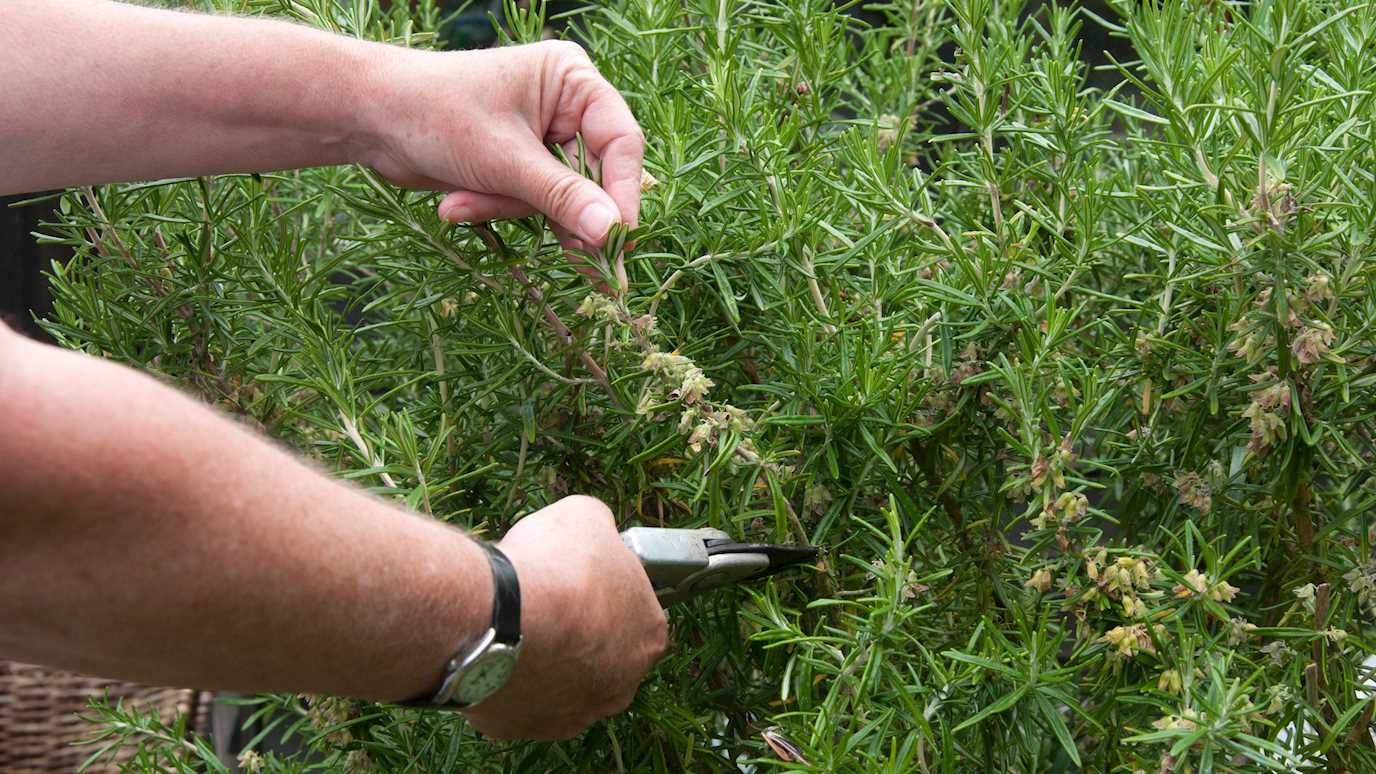Research from the Royal Horticultural Society (RHS), Vitacress Herbs and Royal Holloway has shown that the addition of mycorrhizal fungi to soil leads to increased production of essential oils in rosemary, making the plants more aromatic and flavoursome.

Credit Tim Sandall
Mycorrhiza are beneficial fungi that grow in association with plant roots, increasing the area from which plants can absorb nutrients and water. The fungi are widely available commercially for gardeners to add to their soil to help plants become more vigorous, overcome plant problems and cope with conditions of drought, amongst other uses. The research also found that the fungi more consistently colonised the root area when it was mixed in with soil prior to growing on.
Adding mycorrhizal fungi did not affect the shape or structure of the plant, just the production of the compounds that enhance the flavour and taste of rosemary. This means that home gardeners and trade growers will be able to produce rosemary plants with a consistent appearance but with the potential for extra flavour.
The RHS saw a dramatic increase in interest in herbs over autumn, with searches increasing by close to 600% compared to 2021, as people look for easy and cost-effective ways to add extra flavour to their meals. Rosemary, like some other scented plants including lavender, is also known to have therapeutic qualities and it is thought rosemary’s uplifting scent can help enhance memory. This work has the potential to lead to further research into ways to increase production of essential oils, leading to garden rosemary plants with stronger scents.
Dr Paul Devlin, Reader in Plant Environmental Responses, Department of Biological Sciences at Royal Holloway, said: “Addition of mycorrhizal fungi offers a sustainable approach to improve herb quality for consumers and growers alike by triggering the plants to increase the allocation of resources towards aroma and taste.”
Professor Alistair Griffiths, Director of Science at the RHS, added: “The RHS is dedicated to helping gardeners and growers get even more from their plants, and this study does just that. People want herbs with a strong smell and taste, and we have shown that the addition of mycorrhizal fungi is an easy and effective way to meet this demand.”
The delicate blue flowers of rosemary are highly beneficial to pollinators, as blooms appear from early spring and can last well into autumn, providing a good source of nectar for many species.
The research was published in the open access journal ‘Life’ and was funded by a studentship from the RHS, Vitacress Herbs Ltd and Royal Holloway University of London. The aim of their research is to investigate methods to increase the aroma and taste of rosemary, one of our most popular herbs, and therefore improve the quality of rosemary for sale in the UK.
Find out about useful tips on growing rosemary in your own garden.
Find out more about research in Plant Molecular Sciences at Royal Holloway
























